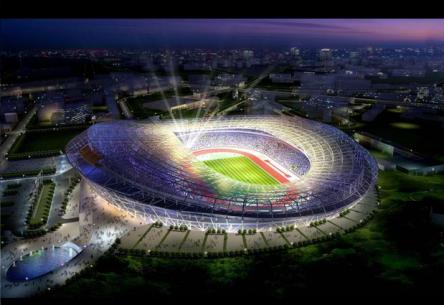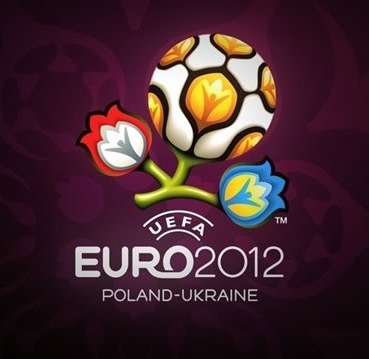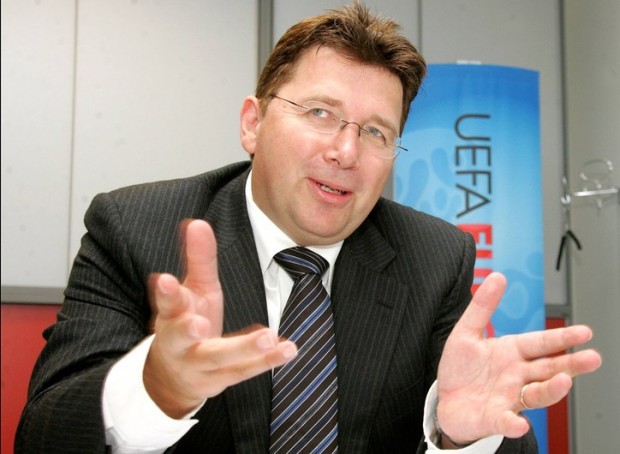By Andrew Warshaw at the Dolder Grand in Zurich
November 8 – The organiser of next year’s European Championship finals in Poland and Ukraine admits that “the luck of the draw” could play a significant part in determining whether the event ends up being a success – off the field as much as on it.
The Euro 2012 tournament director, UEFA’s Martin Kallen, has no doubts that the stadiums will be first class but concedes that transport issues still present a major challenge.
Kiev’s brand new stadium opens up against Germany in a friendly on Friday (November 11) while Austria are the visitors to Lviv next Tuesday (November 15), two games that represent a symbolic landmark in preparation for the finals.
But while stadium issues are no longer a major concern, considerable emphasis is being placed on transport and airports, given that the joint hosts have a landmass 15 times bigger than Austria and Switzerland, who staged 2008.
Rail links between some airports and stadiums are still not up to scratch, said Kallen, but at least UEFA now know where to focus the attention seven months before kickoff.

“From a stadium point of view we are in good shape,” he told the International Football Arena during a progress report.
“Now we are working on operational readiness.
“In Gdansk, for instance, we weren’t sure if the new airport terminal would be in place in time and I had some sleepless nights but it will open on April 2.”
Most flights into both Poland and Ukraine will be by charter and Kallen refutes the suggestion that some airports will become white elephants after the finals, with foreigners no longer interested in visiting some of the eight cities involved.
“Nobody is building an airport just for the Euros,” he said, “but to develop the market for the next 20 years.
“The temporary terminals, some of which have been used since Soviet times, will all disappear.”
With regard to accommodation, Kallen said there would be just as many as in Switzerland and Austria, with 7,000 rooms available in Kiev alone at 3-5 star level.
But road and rail projects remain behind schedule in some areas, posing potential problems if western-based teams are forced to travel too far east, and vice-versa.
Visa issues could come into play too if, for instance, Russia are drawn to play in Poland.

“In terms of the stadiums, none of those used for 2008 will come close to, say, Gdansk or Donetsk,” said Kallen.
“But it’s true that the luck of the draw in Kiev on December 2 could help us in terms of where teams will go. In terms of transport we will never be at the same level as in Switzerland and Austria.”
Defending UEFA’s decision to choose Ukraine and Poland, Kallen continued: “It’s true we have never had to spend so much time on transport, nor were hotels a subject that was on our table to such an extent before. Political change in both countries didn’t help either but it’s been a new experience. We always had confidence we would be ready on time.”
He admitted, however, that it was important both joint hosts advance past the group stage to maintain local interest in what is the first major tournament to be held in Eastern Europe.
“When Switzerland and Austria were eliminated it reduced the emotion a bit. I very much hope both hosts this time will play a good competition because it’s particularly important for the fans in these countries.”
Contact the writer of this story at zib.l1743665923labto1743665923ofdlr1743665923owedi1743665923sni@w1743665923ahsra1743665923w.wer1743665923dna1743665923
Related stories
November 2011: Kallen confident Ukraine and Poland can deliver Euro 2012 success
